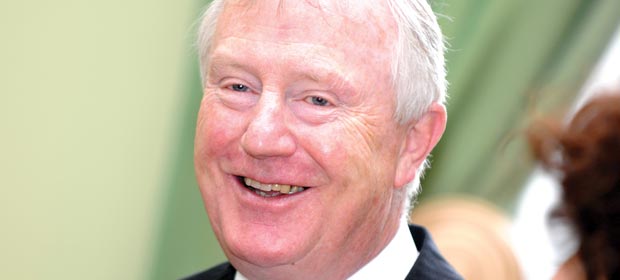
Asked to explain the reasons for poor political performance, former British Prime Minister Harold MacMillan replied “events, dear boy, events”. Healthcare providers, public and private, are susceptible to all kinds of major disruptive events. I have in mind, for example, major economic downturns, pandemics, cyber attacks, significant population changes and so on. Ireland has had experience of all of the foregoing in recent years. Wars in faraway places such as Ukraine and Gaza impact our health services also.
The impact of the disruptions caused by major unforeseen events is often experienced at the levels of both organisations and their employees. Governments, organisations and individuals finding themselves in unfamiliar territory sometimes behave in ways that in hindsight surprise them. Caution went out the windows at times during Covid19. An example of that was the waste of money, notably in the UK and allegedly here also, spent on procuring personal protective equipment that turned out to be unusable. Perceived necessity sometimes replaced good procurement practice and thereby made the case for good practice orthodoxy even in a crisis.
Will we ever forget the images of doctors and nurses struggling to treat patients without treatment modalities capable of confronting the needs of their patients and in work wear that was not affording them or those they served personal protection.
Nursing homes found themselves in the invidious position of trying and at times failing to protect their residents, the families of residents as well as their employees. They were also required to comply with the new rules aimed at controlling the spread of the virus.
In time, new vaccines and expanding knowledge and practice developments in treating very ill patients led to the hoped for wish of a return to “normality”.
But, it was soon discovered that the Covid type experience doesn’t come, wreak havoc and then disappear to enable the world to return to the old normal. In his wonderful poem ‘Postscript’ Seamus Heaney described the folly of seeking to capture what is innately transient. He illustrated his point by reference to how the autumn weather along the Flaggy Shore of Clare produces magical experiences that are elusive.
“Useless to think you’ll park and capture it
More thoroughly. You are neither here nor there”
The origins and history of Covid 19 remain largely illusive, even at this remove.
It seems to me that the type of inquiry being conducted in the UK is overly focused on the allocation of blame. A focus on what we have learned from that painful experience would be much more helpful. Here, we learned early on that we were woefully short of ICU beds and acted quickly to ameliorate that problem. One wonders how many more deficiencies of that nature remain in our system?
Have we forgotten the lengths healthcare workers went to as they endeavored to protect their patients and service users from Covid? Then, on returning home they took every precaution they could to protect their families from the virus. The stress of that experience endures but is it recognised by critics of the healthcare system in relation to cost, staff numbers and the loss of staff? Contrast that with the empathy being shown towards the commercial hospitality sector here. In the hospitality sector, the difficulty in recruiting and retaining staff, high inflation in the cost of goods, wages and utilities are used as the justification for providing financial supports to the sector. Political point scoring is, arguably, the basis of both contrasting attitudes.
Healthcare and hospitality face many similar challenges but the difference is that in healthcare there is increased demand and criticism of the costs being incurred in meeting that whilst the hospitality sector is being compensated financially for having to deal with reduced demand.
Our healthcare staff performed heroically throughout the lengthy time period when Covid 19 wreaked havoc here just as it did globally. It seems to me they have not been afforded the appreciation they deserve in going above and beyond the call of duty.
The toll that Covid 19 took on healthcare employees in the performance of their public duties has not been adequately quantified in my view. That failure misses out on the learning that can be derived from the experience, which may only be felt when the next big disruption to our health services is experienced. It is not too late to take the steps needed to overcome that oversight
To what extent are our health services better equipped now to repel a cyber attack than they were last time? HSE answers that senior cyber security staff appointments are imminent, three years after the seriously damaging and costly previous attack, doesn’t inspire confidence that lessons have been learned and acted upon. There needs to be a stronger focus on ‘learning’, one of the four values espoused by the HSE.
Artificial intelligence (AI) has the potential to be an enabler, a disrupter or, more likely, both. Where healthcare in Ireland is concerned AI appears to have the potential to radically alter how, where and by whom healthcare will be delivered in the future. Information technology generally has developed to a level where AI is likely to be more revolutionary than evolutionary. Healthcare costs may increase significantly if, in the short term, demonstrable improvements can be delivered.
George Bain, a former Vice Chancellor of Queens University Belfast was a great management thinker who advocated the need for “Someone to watch the sea while others watched the waves”
His advice was apt when first offered. The sea now needs more careful watching!

